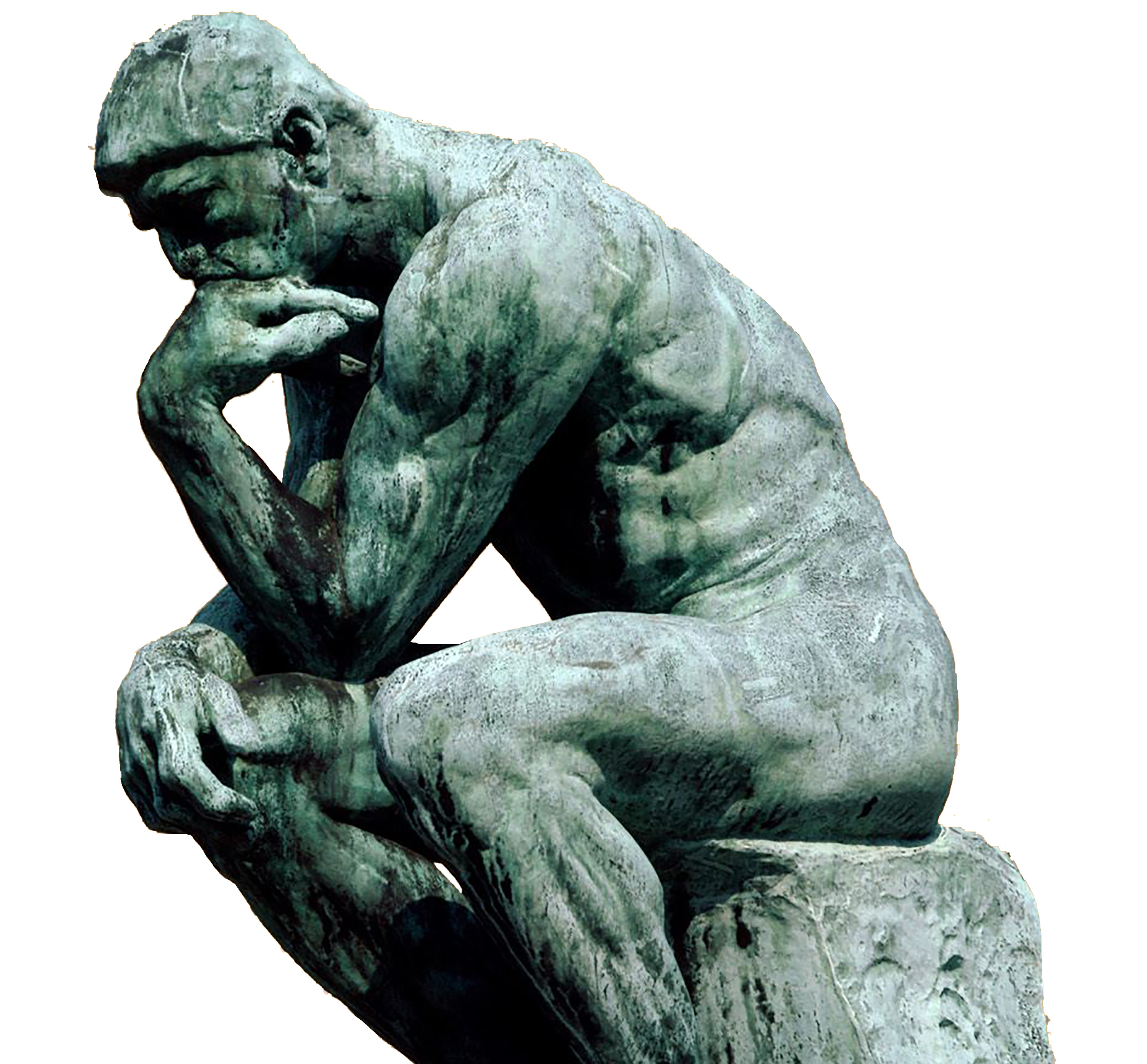First Level: Paraphrasing a Text, Man's Search for Meaning
In this set of activities you will be both paraphrasing and explicating
the thesis of several classic texts. You will paraphrase each excerpt
section by section, followed by explicating the texts by stating your
understanding of each one in your own words, then elaborating,
exemplifying and illustrating them. In other words, for each of the
texts in this section, you will begin by articulating them in your own
words, sentence by sentence, or in parts, as we have presented
them. Then you will explicate each one at level two.
After writing out your paraphrases in your own words, and explicating them, click on the thinker icon to see our specimen answers. You will first read the text as a whole at the beginning of each section, along with its background information, and then you will find the same text divided into parts for your practice.
After writing out your paraphrases in your own words, and explicating them, click on the thinker icon to see our specimen answers. You will first read the text as a whole at the beginning of each section, along with its background information, and then you will find the same text divided into parts for your practice.
Man's Search for Meaning
Background Information:
The following excerpt is taken from Viktor E. Frankl’s book, Man’s Search for Meaning (1959). Dr. Frankl, a psychiatrist and neurologist who was imprisoned at Auschwitz and other Nazi prisons, developed a theory of “logotherapy” which “focuses its attention upon mankind’s groping for a higher meaning in life.”
What man actually needs is not a tensionless state but rather the striving and struggling for some goal worthy of him. What he needs is not the discharge of tension at any cost, but the call of a potential meaning waiting to be fulfilled by him... [People] lack the awareness of a meaning worth living for. They are haunted by the experience of their inner emptiness, a void within themselves; they are caught in that situation which I have called the ‘existential vacuum.’...This existential vacuum manifests itself mainly in a state of boredom... Not a few cases of suicide can be traced back to this existential vacuum... Sometimes the frustrated will to meaning is vicariously compensated for by a will to power, including the most primitive form of the will to power, the will to money. In other cases, the place of frustrated will to meaning is taken by the will to pleasure... Ultimately, man should not ask what the meaning of life is, but rather must recognize that it is he who is asked. In a word, each meaning is questioned by life; and he can only answer to life by answering for his own life; to life he can only respond by being responsible... (pp. 166-172).
Background Information:
The following excerpt is taken from Viktor E. Frankl’s book, Man’s Search for Meaning (1959). Dr. Frankl, a psychiatrist and neurologist who was imprisoned at Auschwitz and other Nazi prisons, developed a theory of “logotherapy” which “focuses its attention upon mankind’s groping for a higher meaning in life.”
What man actually needs is not a tensionless state but rather the striving and struggling for some goal worthy of him. What he needs is not the discharge of tension at any cost, but the call of a potential meaning waiting to be fulfilled by him... [People] lack the awareness of a meaning worth living for. They are haunted by the experience of their inner emptiness, a void within themselves; they are caught in that situation which I have called the ‘existential vacuum.’...This existential vacuum manifests itself mainly in a state of boredom... Not a few cases of suicide can be traced back to this existential vacuum... Sometimes the frustrated will to meaning is vicariously compensated for by a will to power, including the most primitive form of the will to power, the will to money. In other cases, the place of frustrated will to meaning is taken by the will to pleasure... Ultimately, man should not ask what the meaning of life is, but rather must recognize that it is he who is asked. In a word, each meaning is questioned by life; and he can only answer to life by answering for his own life; to life he can only respond by being responsible... (pp. 166-172).
Now that you have read the full text above, you will find the same
text in sections below. Write out your paraphrase of each section in
the box provided. Then see our specimen answers by clicking on the thinker icon.
What man actually needs is not a tensionless state but rather the striving and struggling for some goal worthy of him. What he needs is not the discharge of tension at any cost, but the call of a potential meaning waiting to be fulfilled by him...

[People] lack the awareness of a meaning worth living for. They are haunted by the experience of their inner emptiness, a void within themselves; they are caught in that situation which I have called the ‘existential vacuum.’...

This existential vacuum manifests itself mainly in a state of boredom... Not a few cases of suicide can be traced back to this existential vacuum...

Sometimes the frustrated will to meaning is vicariously compensated for by a will to power, including the most primitive form of the will to power, the will to money. In other cases, the place of frustrated will to meaning is taken by the will to pleasure...

Ultimately, man should not ask what the meaning of life is, but rather must recognize that it is he who is asked. In a word, each meaning is questioned by life; and he can only answer to life by answering for his own life; to life he can only respond by being responsible...
